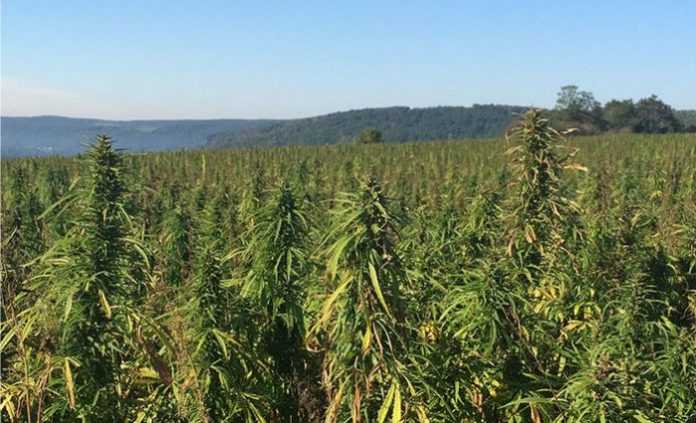New York Governor Andrew M. Cuomo announced yesterday that more than 60 new farms and businesses have been granted permits to participate in the state’s industrial hemp program.
It’s a big step up from the 2017 season, when 20 research partners were permitted to grow and research the crop.
Approximately 3,500 acres of farmland in nine regions of New York State have been approved for industrial hemp research trials, up 43% on the 2,000 acres in 2017.
“There is a renewed interest in industrial hemp production and processing throughout the country, and with our strong grower community and innovative researchers, New York is in a great position to lead,” said Governor Cuomo.
In addition to growing the crop for food, fiber, grain, animal bedding, insulation and various other products, the potential cosmetic and health benefits of CBD (cannabidiol) will also be explored. Some strains of industrial hemp can contain high levels of CBD, while remaining low in THC.
Governor Cuomo’s announcement also marks the start of applications for future research partners in the areas of food and fiber being accepted on a continuous basis.
The Governor has been a big supporter of industrial hemp (and medical cannabis). In July last year, he signed legislation to support a major expansion state’s hemp industry and announced $10 million in grant funding to advance related research.
Many farmers in the state are currently struggling, so embracing hemp could contribute to a turnaround for New York’s agricultural sector.
“By providing an alternative crop for our farmers, industrial hemp has the potential to change the landscape of our agricultural economy, create jobs and drive growth across the Southern Tier and throughout New York,” said Mr. Cuomo .
18 processing companies are now registered in New York, providing the necessary capacity to turn the crop into various items.
Industrial hemp is rapidly shaking its undeserved reputation across the USA, which gained through the demonising of the crop last century from marijuana prohibition related efforts that saw the baby thrown out with the bathwater. Perhaps in the not-too-distant future, locally grown hemp will displace the imported products and materials US manufacturers have been forced to work with for decades.


